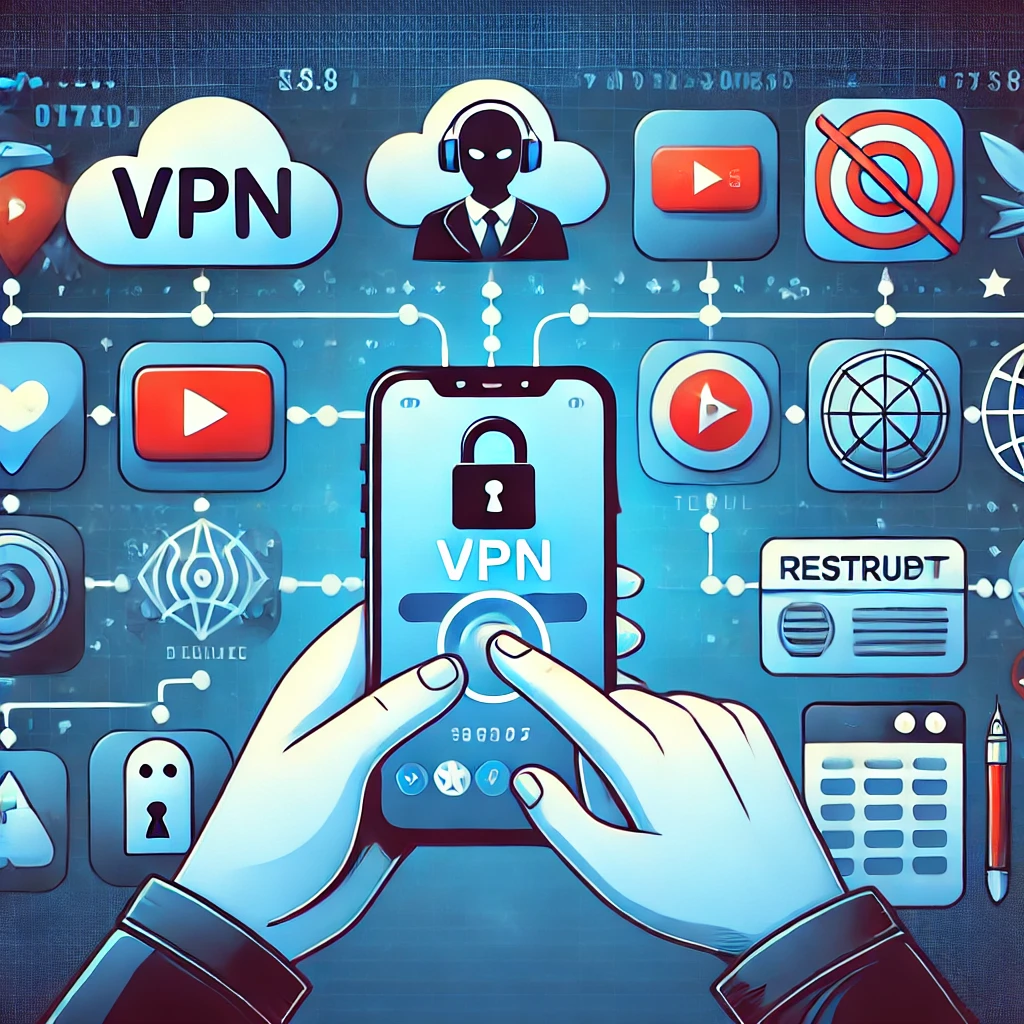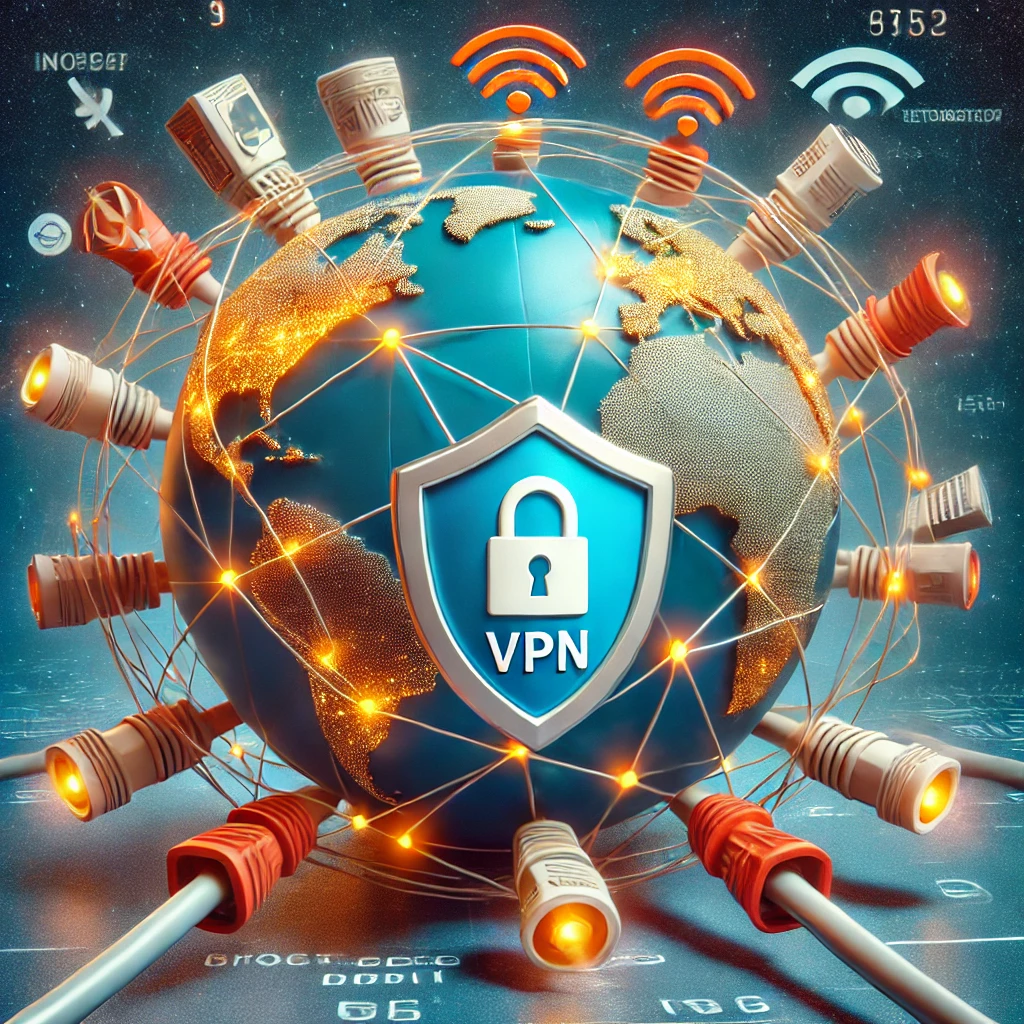VPN for bypassing censorship

In the modern world, where the internet has become an integral part of our daily lives, issues of security and freedom of access to information are becoming increasingly relevant. The internet provides us with unlimited opportunities for communication, learning, work, and entertainment. However, along with these opportunities, risks also arise: data leaks, surveillance, censorship, and blockages. This is why using a VPN to bypass blockages and ensure security has become a necessity for many users.
What is VPN and how does it work?
VPN (Virtual Private Network) is a technology that allows you to create a secure and encrypted connection over a public network, such as the internet. When using VPN, your internet traffic passes through a secure tunnel to a remote server, after which it is directed to the internet. This means your real IP address is hidden, and the data is encrypted, ensuring a high level of privacy and security.
VPN principles:
- Data encryption: All the data you send and receive is encrypted using complex algorithms, preventing third parties from intercepting and reading the information.
- IP address masking: Your real IP address is replaced with the IP address of the VPN server you are connected to, making it difficult to track your location and online activity.
- Bypassing geographical restrictions: By connecting to VPN servers in different countries, you can access content unavailable in your region.
Why is using a VPN becoming a necessity?
Protecting personal data
In the digital age, personal data has become a valuable resource. Hackers and cybercriminals are constantly seeking ways to gain access to this information. By using a VPN, you significantly reduce the risks:
- Protection on public Wi-Fi networks: Public access points are often not adequately secured. VPN prevents your data from being intercepted in such networks.
- Privacy: Your internet provider and other organizations will not be able to track your online activity.
Bypassing blockages and censorship

In many countries, access to certain websites and services is restricted for various reasons: political, cultural, or economic. VPN to bypass blockages allows users to access the information they need without restrictions.
- Access to blocked resources: Social networks, news sites, or services may be unavailable in your country. VPN helps bypass these restrictions.
- Freedom of information: VPN for bypassing censorship becomes a tool for ensuring freedom of speech and access to independent information.
Improving the online experience
- Lowering prices: Some online services offer different prices depending on the user's country. By connecting via VPN to a server in another country, you can get better deals.
- Access to content: Streaming services like Netflix or Hulu have different content libraries for different regions. VPN allows you to watch movies and shows unavailable in your region.
How to choose a reliable VPN service?
When choosing a VPN, it is essential to consider several key factors:
Security and privacy
- Encryption protocols: Make sure the service uses modern and reliable protocols, such as OpenVPN or IKEv2.
- No-log policy: Give preference to services that do not store logs of your activity, ensuring complete anonymity.
Speed and performance
- High connection speed: Some VPNs can significantly slow down your internet connection. Look for services with optimized servers to ensure maximum speed.
Geographic coverage
- Number of servers and their locations: The more servers and countries a VPN covers, the more options you have to bypass blockages and censorship.
Device and platform support
- Compatibility: Make sure the VPN service supports all your devices: computers, smartphones, tablets, etc.
Additional features
- Kill Switch: This feature automatically disconnects the internet if the VPN connection drops, preventing data leakage.
- P2P support: If you use torrents, make sure the service supports P2P connections.
Legal aspects of using VPN
Using VPN is legal in many countries, but there are states where using VPN is prohibited or restricted by law. Before using VPN to bypass blockages or VPN to bypass censorship, it is recommended to:
- Familiarize yourself with local legislation: Find out what restrictions exist in your country.
- Avoid illegal activities: Using VPN does not exempt you from responsibility for illegal actions.
VPN usage recommendations
- Update your software: Regularly update the VPN client to protect against vulnerabilities.
- Use strong passwords: If your VPN service requires registration, use strong passwords and enable two-factor authentication.
- Do not save personal data: When using public devices, do not save your logins and passwords.
- Choose the right server: For maximum speed and efficiency, choose servers located closer to your location or in the country where the desired content is available.
- Stay informed: Sometimes governments introduce new laws or restrictions affecting the use of VPN. Stay updated with the latest news.
Real-world examples of VPN usage
Journalists and activists
For those working under strict censorship conditions, VPN for bypassing censorship becomes an essential tool. It allows them to communicate securely, transmit information, and access independent news sources.
Travelers
People who frequently visit different countries face geographical restrictions on accessing their favorite services and websites. VPN helps bypass these restrictions and use the internet as they would at home.
Business
Companies use VPN to protect corporate data, especially when employees work remotely. This ensures the security of confidential information and corporate networks.
Potential risks and limitations
- Speed reduction: Data encryption can slow down the connection. However, modern VPN services minimize this effect.
- VPN blocking: Some governments and organizations actively block VPN use. In such cases, special protocols or services capable of bypassing such blocks may be required.
- False sense of security: Using VPN does not guarantee absolute security. It is also important to follow general cybersecurity rules.
Conclusion
In the modern digital world, protecting personal data and free access to information are becoming priority tasks for every user. Using VPN to bypass blockages and VPN to bypass censorship allows for security, privacy, and freedom on the internet.
By choosing a reliable VPN service and following recommendations for its use, you can protect yourself from cyber threats, access the necessary content, and keep your online activity private. The internet should remain a space of freedom and opportunities, and VPN helps make this world more open and secure for everyone.
Remember: online security is not a luxury but a necessity. By investing time and resources in choosing and configuring a VPN, you are taking an important step towards protecting yourself and your data in the digital space.